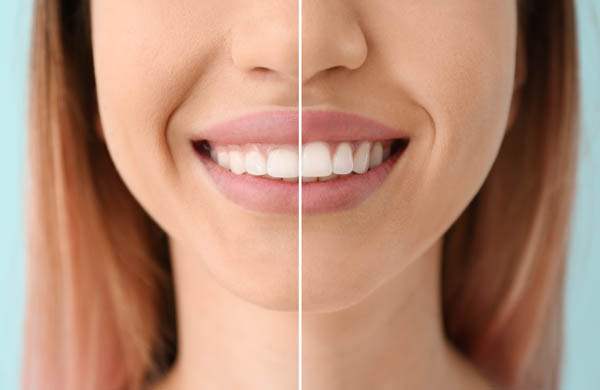What to Expect from a Gingivectomy

The scientific name for gum tissue is gingiva. A gingivectomy is a surgical procedure to remove gum tissue that is diseased and has become detached from the teeth. It may be performed if a root planing and scaling has not been sufficient to address symptoms. The procedure removes pockets between the teeth and gums that allow bacteria to collect and provide easier access for professional cleaning of the teeth.
Gingivectomy can also be performed for aesthetic reasons to improve the appearance of the smile when the gum tissue is healthy but overabundant. This is less common; gingivectomy is usually only performed for therapeutic reasons.
What can you expect during the procedure?
The length of the gingivectomy procedure depends on the amount of tissue that has to be removed. If it is only a small amount, then the procedure can be completed in about 30 to 60 minutes. If extensive removal and reshaping are required, the procedure may take longer or require several separate visits to complete.
The procedure can be performed with either a scalpel or a laser device. Laser gingivectomies are increasingly common because they offer several significant advantages over scalpels:
- Less chance of infection from contamination of the blade
- Less bleeding because the laser cauterizes the wound
- Greater precision
- Faster healing
Prior to the procedure, the periodontist numbs the gums so you should not feel any pain. Your mouth may produce excess saliva, so your periodontist may keep a suction tool in your mouth throughout the procedure to remove it promptly. Your gums need to be protected while they heal, so your periodontist may place bandages over them along with another type of dressing that appears as a soft, putty-like substance.
What can you expect after the procedure?
Once the numbing agent wears off, you may experience discomfort and jaw pain. This is normal and should subside after a few days. You can use cold compresses to help ease the pain, as well as over-the-counter pain relievers, such as acetaminophen (Tylenol) or ibuprofen (Advil). If you are at risk for a postsurgical infection, your periodontist may prescribe antibiotics for you to take as a precautionary measure.
It is also normal to experience bleeding from the gums for the first few days following your procedure. You should receive instructions on how to change the dressings from your periodontist following the procedure. Your periodontist should also advise you how long you need to keep the bandages on your gums or schedule a follow-up appointment at which you should receive further instructions.
Saltwater rinses under the guidance of your periodontist can help to prevent gum irritation and infection by controlling oral bacteria. Do not use any other types of mouthwash. As you recover from surgery, it is important to keep up excellent oral hygiene to prevent further gum disease. If you have questions about flossing around the surgery site, ask your periodontist. Otherwise, floss your teeth once a day and brush them at least twice daily.
Conclusion
Though rarely performed for cosmetic purposes, a gingivectomy is usually done to treat gum disease by removing damaged and detached gum tissue. Following the periodontist's instructions following surgery helps you to recover more quickly without complications.
Contact our office for a consultation with a periodontist about treatment options for your gum disease.
Check out what others are saying about our services on Yelp: Gingivectomy in Ventura, CA.
Related Posts
A periodontist has the knowledge and training to prevent and diagnose periodontal disease. This oral health provider can perform necessary surgical procedures that can improve your oral health and smile. Knowing the role of this dentist in achieving your oral health can give you peace of mind. Here are the details about what a periodontist…
A family dentist serves as the front line of defense for oral health and preventive care. They can see patients from childhood all the way through their lives, allowing for a level of continued care, attention, and personal knowledge that is unmatched among other types of dental offices. If you are considering what kind of…
You should be as concerned about gum disease as you are tooth decay. This condition can affect your oral health and overall wellness. It is important to recognize the signs and symptoms of this disease so you can treat it properly. There are also risk factors that lead to the condition and ways you can…
If you wear dentures, you understand how important of a role they play in your life. Not only do dentures make eating easier, but dentures will help you with speaking and to tackle all your day-to-day activities. Your dentures are a part of you, so it is no wonder why you may feel a surge…
